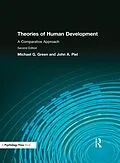The authors have grouped the theories into three classical "families" which differ in their views relative to the prime motives underlying human nature. They show how theories are specific examples of more general points of view called paradigms. The theories chosen to represent the three paradigms (the Endogenous Paradigm, Exogenous Paradigm, and the Constructivist Paradigm) were selected because they met four criteria:
- importance, as judged by academic and research psychologists
- fertility, as judged by the amount of research the theory has generated
- scope, as judged by the variety of phenomena the various theories explain
- family resemblance, as judged by how well each theory represents its paradigm
The authors present the "paradigm case" in the lead chapter for each paradigm. This paradigm case is the "best example" for the paradigm. The authors explain why paradigm cases are important, and give them more detailed treatment than other theories in the same paradigm.
Autorentext
Michael G. Green, Associate Professor, Department of Reading and Elementary Education, College of Education, University of North Carolina at Charlotte.
John A. Piel, Professor, Department of Reading and Elementary Education, College of Education, University of North Carolina at Charlotte.
Zusammenfassung
The authors have grouped the theories into three classical "e;families"e; which differ in their views relative to the prime motives underlying human nature. They show how theories are specific examples of more general points of view called paradigms. The theories chosen to represent the three paradigms (the Endogenous Paradigm, Exogenous Paradigm, and the Constructivist Paradigm) were selected because they met four criteria: importance, as judged by academic and research psychologists fertility, as judged by the amount of research the theory has generated scope, as judged by the variety of phenomena the various theories explain family resemblance, as judged by how well each theory represents its paradigm The authors present the "e;paradigm case"e; in the lead chapter for each paradigm. This paradigm case is the "e;best example"e; for the paradigm. The authors explain why paradigm cases are important, and give them more detailed treatment than other theories in the same paradigm.
Inhalt
Part 1: Preliminary Considerations 1. Theories as Windows for Looking to See 2. Evaluating Developmental Theories Part 2: The Endogenous Paradigm 3. Freud and Psychoanalysis 4. Erikson and Psychosocial Theory 5. Wilson and Sociobiology 6. Ainsworth and Infant Attachment Part 3: The Exogenous Paradigm 7. Skinner and Operant Conditioning 8. Bandura and Social Cognitive Theory 9. Vygotsky and Cultural-historical Theory Part 4: The Constructivist Paradigm 10. Piaget and Cognitivedevelopmental Theory 11. Kohlberg and Moral Development 12. The Neo-Piagetians Part 5: Summing Up 13. Are Theories Compatible?
